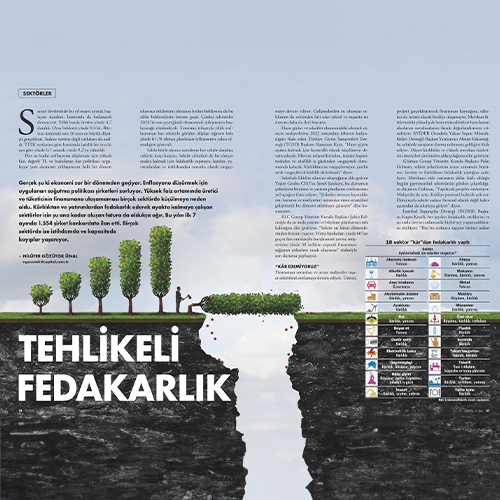The contraction in industrial production, which started in May this year, accelerated in June. On an annual basis, production contracted by 4.7 percent. However, the expectation was 0.4 percent. Thus, the biggest decline in production in the last 16 months was realized. Not only production but also employment decreased. According to TURKSTAT data, unemployment increased by 0.7 percent in June compared to the previous month and rose to 9.2 percent. Although everyone expected the new economic approach, which applies high interest rates, valuable TL and suppressed exchange rate policy to reduce inflation, to have negative effects for a certain period, this picture exceeded expectations. The forecast was that the economy would start to recover in the last quarter of 2024. As of July, despite the decline in annual inflation due to the base effect, it was still 61.78 percent, indicating that the planned recovery was not close. As such, almost every sector faces the risk of contraction. Sector companies continue to make sacrifices to survive in this process and sacrifice profits, investments and employment. The situation is even more severe in textile and construction, two of the sectors most negatively affected by the developments.
The reality is that the economy is going through a difficult period. The cooling policy implemented to reduce inflation is straining companies. The inability of producers and consumers to access financing in a high-interest-rate environment has caused downsizing in many sectors. For the sectors trying to survive by sacrificing profitability and investments, the bill so far is quite heavy. In the first 7 months of this year, 1,554 companies declared concordat. Many sectors are experiencing losses in employment and capacity.
Polat Gülman, Chairman of the Board of Directors of Gülman Group, explains that the sector companies have been sacrificing growth, production and profitability for a long time. Gülman, who thinks that the real estate sector has been sacrificed today, when it is more profitable to keep deposits, said: ‘The projects to be carried out are postponed. Costs have also increased. It is very difficult to find qualified personnel. Therefore, the sector is in trouble not only financially but also in terms of quality.’

